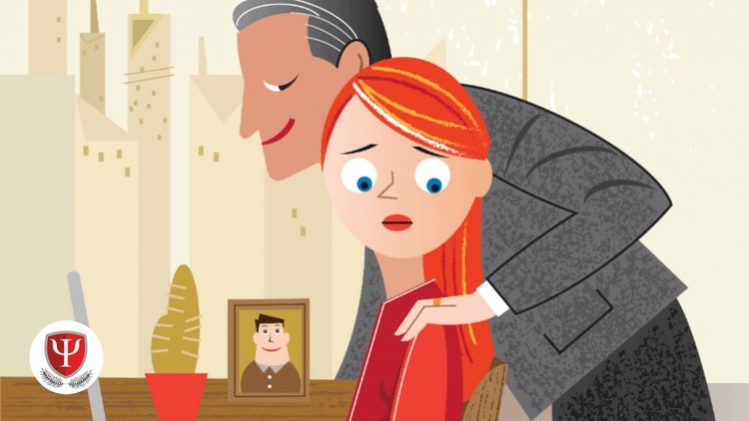
CORE BELIEF DISRUPTION & GROWTH
HOW TRAUMA AFFECTS YOUR THINKING
REFLECTIVE THINKING & REBUILDING
BUILDING A RESILIENT SYSTEM
THE USEFUL SIDE OF TRAUMA
TAKING CONTROL OF YOUR EMOTIONS
RELAXATION EXERCISES
THOUGHT JOURNALING
IMPROVE PERSONAL STRENGTH
IMPROVE RELATIONSHIPS WITH OTHERS
OVERALL LIFE APPRECIATION
DISCOVER NEW LIFE PATHS AND POSSIBILITIES
COPING MECHANISMS
FINDING COMPASSION AND COMPANIONSHIP
FINDING MEANING, PURPOSE, AND MISSION
Who is likely to get PTSD?
Overview of treatments for PTSD
How to treat single incident and multiple incident PTSD
PTSD & Trauma Aftermath Counselling Professional Training
About Instructor:
Aman Varma has undergone accredited course training in CBT practitioner, Diploma in Hypnotherapy, Mental Health Practitioner, NLP Specialist Practitioner, Diploma in Psychological Counseling and Diploma in Modern Applied Psychology.
Help your clients come through PTSD wiser, stronger, and more resilient with evidence-based tools and techniques.
I’ve heard somewhere a trauma survivor said, “Why to waste this traumatic experience on just getting back to who I was?” This question captures PTSD growth or PTG. This term was coined in the early 1990s with the basic concept that positive personal transformation can occur in the aftermath of trauma.
There are many good courses already available to help people cope with the symptoms of trauma and PTSD. Like other courses on trauma recovery, this course is for people who have faced or are continuing to face adversity in their lives and are looking for ways to navigate it successfully.
But, this course takes trauma survivors beyond simply learning how to cope better. This course is for those who wish to go beyond being resilient, to experience meaningful personal growth and perhaps radical transformation in the aftermath of a trauma. I will give you the tools to thrive, grow, and transform yourself.
In this course, you will find ways to help your client enhance their chances of strengthening themselves through the great pain of loss or trauma. This course will help you guide your clients by showing how to use their struggles with life’s losses and tragedies to develop in ways that might not have been possible without them.
The concept of PTSD growth is recognized for centuries. From the ancient Greeks to today, tragedy has been a common theme in many great works of literature. It is also an essential ingredient in soap operas, movies, novels, and the stories people love. Perhaps the enduring appeal of these stories for most of us is that they teach the lessons of suffering without our having to experience the pain directly.
You may wonder, what if I have PTSD? How can I move toward posttraumatic growth if I am struggling with PTSD? The truth is that the same challenges that create PTSD also set the stage for a psychological rebirth. In the aftermath of trauma, what was once an understandable reality has now become mystifying. You have difficulty navigating the strange new life you find yourself living. This difficulty produces the classic symptoms of PTSD: a self-protective posture toward life that is essentially automatic, treating the world as an unsafe place. Being easily startled, having nightmares, feeling emotionally numb, having flashbacks to traumatic events, and feeling mistrustful are all part of this self-protective reaction.
But these shocking challenges to the usual way of living can also set in motion an exploration of new ways of living that becomes PTSD growth. Some people may experience symptoms of PTSD and posttraumatic growth at the same time. This is one of the paradoxes of PTSD growth.
You have likely picked up this course because this idea attracted you. If you have to go through the tragedy and loss of trauma, why not make sure there is something worthwhile in the end?
In this course, we hope that you will find a pathway to personal transformation as well. We are eager to share with you the wisdom of other trauma survivors, their accomplishments, and the ways we have devised to encourage the process of PTSD growth. Because of the focus on PTSD growth, this course is different from others that you will find on trauma recovery, posttraumatic stress disorder, and the like. We are not naive about the difficulties of trauma survivors, but we see their possible futures. We hope that as you progress in this course, you will also see a bright future for yourself. As you work through the exercises in this course and apply them to your life, you will see positive results.
If you’re a clinician hoping to use this course with those you treat, you are most welcome to do so as the worksheets are open excel files 🙂
Who this course is for:
- Psychologists, Clinicians, Therapists, and counsellors
- People who struggle with trauma, PTSD, or the aftermath of trauma






